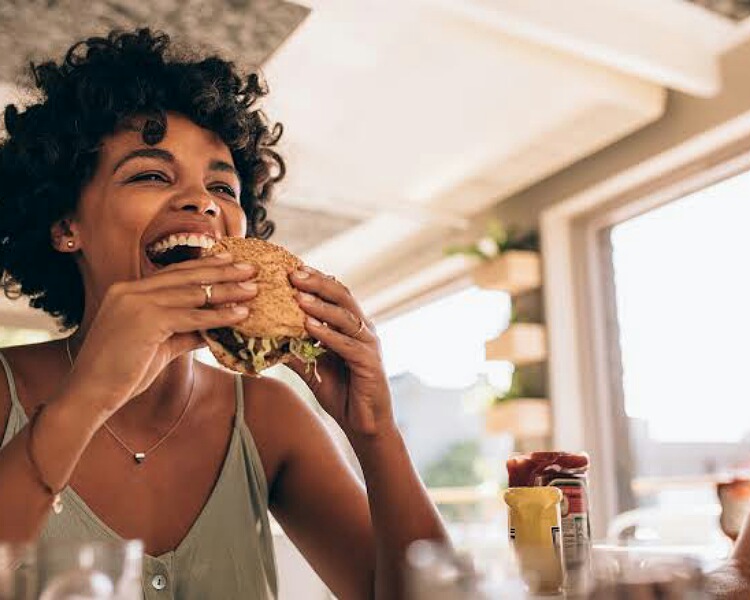Bloating is a gut problem that is better prevented rather than treated.
There is little that one can do as a therapy. But studies have shown that mindful eating can relieve bloating and restore gut health. But what exactly is mindful eating?
Bloating: Prevention better than cure
Bloating is the formation of gases in the gut. That leads to pain as the formed gases migrate in the gut. And this could erupt upwards or downwards causing embarrassment in society.
Chronic stress impacts the digestive process negatively. Therefore, elimination of mental tension can cause the digestion to proceed smoothly and prevent bloating.
There are some medicines for bloating but they are not 100% effective and can also side effects.

The gut microbiome has a synergism with the brain vis the neural system. Similarly, brain can affect the gut. Naomi Leppitt, gut health specialist dietitian states:
“Raised stress in the body has been shown to worsen gastrointestinal disorders and increase the permeability of the gut,”
“If we’re anxious, you might find you get more gut symptoms like constipation or diarrhoea because blood flow is redirected away from your gut to your limbs as the fight-or-flight response is triggered.”
Mindful eating and bloating
A review study by scientists at Maryland University in 2019 showed that eating mindfully can ease out our tension. Digestion gets better.
The parasympathetic system gets more active and this improves the secretion of the digestive process and motility of the gut. Both assist in reducing bloating.
But what exactly is mindful eating? In this eating, there are some points that the person should remember and adhere to.
These tips are to be followed so that the bloating comes down. And review studies have shown that this helps. What are the components of this eating?

1. Eat slowly
One should not have a rushed meal. Instead one should slow down and have food at a slower pace. This decreases the pressure on our gut. The inflammation reduces and therefore bloating comes down.
Start with three deep belly breaths. Munch your food properly before swallowing. Take some breaths in between bites. Dietitian Pippa Campbell agrees:
“My number one tip is always to chew your food,”
“Chewing is the first stage of digestion and we need our food to be more of a liquid pulp before we swallow. Chewing produces the digestive enzymes that we need for further down the digestive process and means that the rest of our system has less work to do. You’d also be surprised by how much chewing your food properly can help ease bloating.”
2. Eat in a relaxed manner
Have a soothing and calm environment to eat. NHS GP, Dr Rupy Aujla says:
“Create an enjoyable relaxing eating environment to create positive emotions around food and signal to your nervous system a shift to rest and digest,”
Eat on a table, prepare it well, have food in your favorite crockery, and have background music and good lighting. This creates a relaxing environment and eases our nervous system.
3. Engage your senses

Engage all senses in food intake such as smell, sight, and touch. This improves secretion of digestive juices.
Read more Ulcerative colitis: Advice for flare-ups and elimination foods!
4. Gratitude
Think about how and from where the food comes. Dr. Rupy adds:
“This will naturally slow your eating and allow you to become more connected to your food,”
These are simple tips but go a long way to improve our digestive system and prevent bloating.
